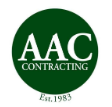Title Page
-
Job Number
-
Work in progress
-
Inspection Date
-
Inspector Name
- Cole Hardenbrook
- Tim Laursen
- Lucas Boyle
- TJ Schenkel
-
Location
-
PROJECT
-
Project manager
-
Foreman
-
Subcontractor?
-
Subcontractor name
-
Personnel on site
Personal Protective Equipment
-
Head Protection — Hard Hats were worn by all personnel.
-
Eye and Face Protection — ANSI Approved Safety Glasses were being worn at all times.
-
Full Face Shield — Worn as required.
-
Hand Protection — Cut, tear-resistant gloves were worn by all personnel if required
-
Protective Clothing — Good Condition - full leg length work pants, — no shorts or sweat pants
-
Respiratory Protection - Appropriate for the hazard — dust. Must meet ANSI/OSHA specifications for type/fit/medical clearance/training. Filtering Face piece and tight-fitting respirators were worn with P100
-
Hearing Protection — Supplied by specific contractors for TWA of 85+ decibels
-
Foot Protection — Substantial work boots or ANSI Safety Boots.
General Site Safety
-
JHA
-
Site emergency action plan
-
Daily job safety meeting documented
-
Log books up to date
-
Air monitoriing current
-
Project survey/specs on site
-
Hazcomm/SDS on site
-
Training certificates current
-
Notification, waste manifest on site
-
Specialized equipment checklist
-
Forms book on site
-
Potable Water — Available at break area
-
Lavatories —1 Toilet for 20 or less employees & 1 Toilet & 1 Urinal 21-40 employees, I additional and separately marked toilet for female employees. Port-a-John on site
-
Washing Facilities — as required for painters, chemical handling, other workers
-
Safety Eyewashes and Showers — As required for chemical handling
-
State and Federal postings displayed
-
State license/permits on site
-
Signage — No Trespassing — Authorized Construction Personnel Only, Hard Hat and Safety Glasses Required, etc.
-
Security Lighting - Interior and Exterior - As required Existing in work area and stairwell.
-
Perimeter Security Fencing - As required. Exterior of work area on Broad Street is restricted with yellow barrier tape and cones. Work area is monitored by employees.
-
Other issues
Housekeeping and Hazard Control
-
Grounds Cleaned of excess trash and waste materials disposed of daily in trash bins. Shoot use to move debris down to dumpster. Water mist in use to minimize airborne dust levels.
-
Debris free of cut/puncture hazards
-
Walkways & Work Areas - clear of debris, tripping hazards & sharp objects. Clean up in progress during demolition.
-
Fire Control — No flammable materials were on site. Fire extinguishers were available on all occupied floors.
-
Fire extinguisher annual inspection current
-
Fire extinguisher monthly inspection current
-
First aid kit available
-
Construction Materials & Supplies — Properly staged or stored
-
Emergency Access Routes - Doorways, Aisles Fire Exits — 38" clear pathway of travel. EVAC plan gone over with crew by Supervisor in tool box talk.
-
Lighting—Area is properly illuminated.
-
Tools and Equipment — Properly staged and stored
-
Hazard Warning Signs Barricades - Minimum protection 38" from hazards
-
Waste Containers — located throughout the site & near dining facilities
-
Holes covered and marked
-
Cylinders properly stored
-
Approved fuel cans
-
Fuel containment in place
-
Other issues
Material Handling
-
Hand Carts - All tools, Carts, pallet jacks and hand operated transport materials in good condition
-
Powered material handling equipment — All Lull's, forklifts, and other powered industrial vehicles are in good operating condition and inspected
-
Personnel Training - All personnel are trained and qualified to operate the on-site powered equipment.
-
Seat Belts in use by all operators. No vehicles were in use at the time of inspection.
-
Roll over protection (ROPS) Supplied on all equipment.
Asbestos Work
-
NYS notification posted and amended
-
Asbestos assessment
-
EPA notification posted and amended
-
Applicable variances posted
-
Air samples taken as needed
-
Proper signage posted
-
Regulated area(s) established
Stairways and Ladders
-
Permanent & Temporary Stairways / Ladders - Railings, barricades or fall protection in place
-
Landings - Protected against falls by Top rail, Mid Rail, Toe-board. Opening to the 8th floor stairwell was protected during the time of the inspection. Supervisor corrected opening by having a worker create a railing to protect employees from falling.
Ladders
-
Ladders Inspected - No damaged ladders in use. Approved for work application. No job made ladders.
-
Secured Against Tipping. Tied off at top when used to access a landing. Ladder extends min 36 inches above landing.
-
Extension ladders placed at a 4:1 angle, stable footings, base and top clear of tripping hazards,.
-
Employees using 3 points of contact, fall protection over 20 feet of height or if a fall hazard exists over 6 feet in height.
-
Ladder Extends min 36" above landing.
-
Folding, "A" Frame Ladders - "NO STEP" zone on ladder enforced, fully open and not used as straight ladder.
Scaffolding
-
Scaffold tag in use
-
Access ladders provided
-
Scaffolds inspected daily
-
Guards/midrails installed
-
Planking overlaps support by 6 "
-
Scaffold on sound footing
-
Workers trained as erector or user
-
Scaffold inspection sheet completed
Fall Protection
-
Leading Edges — Fall hazards of 6 feet or more protected by:
-
Guardrails, with a Top rail 39"-43", Mid rail 19"-23" & a 3.5" Toe-board or rated for 200 LBS of force, Wire rope flagged
-
Class III Personal Fall Protection Systems. Restraint Systems, Controlled Access Zones, Warning line Systems
-
Approved Safety Nets
-
Controlled Access Zones, Warning line Systems - Flagged at 6' intervals as required
-
Holes - Holes 2" X 2" or greater in size, covered to bear 2 times the weight exerted on it and marked "HOLE" in bright color.
-
Wall Openings Windows - 2" x 2" or greater and less than 43" off floor - approved railing or barricade in place.
-
Protection required for Fall Hazards of 6' or greater
Electrical Hazards
-
Lockout/tagout being used properly
-
Ground Fault Circuit Interrupters in use on all wiring and tools or lighting - inspected and tested daily
-
Cords/Lights/Equipment - No damage to insulation. No electrical tape repairs. Cords were protected from damage from other equipment, doors, window sills, heat, etc.
-
Generators Grounded — External grounding per manufacturers specifications.
-
All multiple Power Outlets and Extensions Cords - UL approval, construction load rated. No job or home built cords with multiple outlets.
-
Power tools properly grounded
-
Lighting - meets UL and National Electric codes and is GFCI Protected.
-
Transmission Lines - grounded and shut down
Tools & Equipment
-
Inspected routinely - Guards In Place. Tools used according to manufacturer's recommendations. Tools are in good operating condition.
-
Powered Hand Tools - GFCI Protected, grounded, or double insulated
-
Personal Protective Equipment - in use on all power tools and appropriate for the job.
-
All blades sharp and in good repair.
Equipment Operation
-
Heavy equipment inspected
-
Equipment clear of overhead power lines
-
Caps guarded/protected
-
Backup alarms working
-
Safe use of equipment/vehicle
-
Spotter when moving equipment
-
Operator trained for equipment
-
Grounded/off while fueling
Aerial Lifts
-
Aerial lifts - Maintained and Inspected as Required. Although not in use at time of the inspection, the contractor had no inspection forms or means to show inspections were being conducted prior to use.
-
Positioned on flat, stable surface - Railings in use and doors secured, - area secured
-
Personal Fall Protection Employed (Class Ill harness and lanyard) on all aerial booms, lifts and buckets. Retractable lanyard for aerial Lifts.
Demolition
-
Written demolition plan on site
-
Demolition survey complete
-
Service lines located and identified
-
Live utilities tagged/protected
-
Wet method/no visible emissions
-
Adequate ventilation
-
Co monitoring
-
Excavation sloped/shored
-
Drop zone marked/protected
-
Silica assessment
-
Lead assessment
Comments
-
Overall impression of Site
-
State reason(s) Site Visit was Below Average
undefined
-
-
Safety Champion awarded?
-
Names of individuals
undefined
-
Report Written by (Name and Signature)
-
Reviewed by (Name and Signature)








